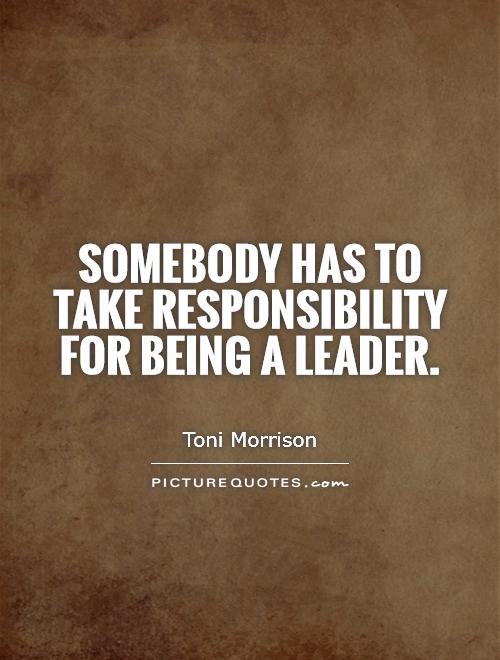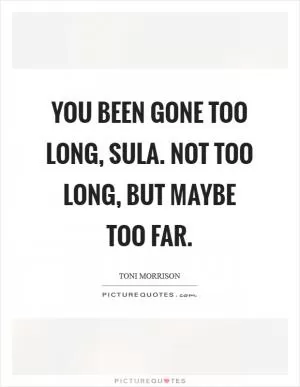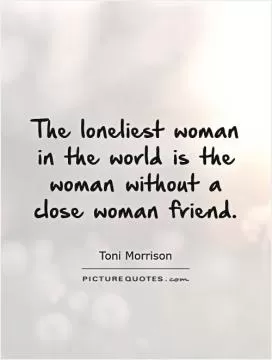Somebody has to take responsibility for being a leader

Somebody has to take responsibility for being a leader
Toni Morrison, the renowned American novelist and Nobel laureate, is often celebrated for her powerful storytelling and profound exploration of the African American experience. Throughout her works, Morrison delves into themes of identity, race, and power, shedding light on the complexities of human relationships and the struggles faced by marginalized communities. In the context of leadership, Morrison's writings offer valuable insights into the importance of taking responsibility for being a leader.In Morrison's novels, characters often grapple with the weight of their own choices and the impact of their actions on those around them. Whether it is Sethe in "Beloved" who must confront the consequences of her past decisions or Milkman in "Song of Solomon" who embarks on a journey of self-discovery and personal growth, Morrison's characters are forced to reckon with their roles as leaders in their own lives. Through their struggles and triumphs, Morrison highlights the transformative power of taking responsibility for one's actions and embracing the challenges of leadership.
Morrison's own life story is a testament to the idea that somebody has to take responsibility for being a leader. As a pioneering African American woman in the predominantly white and male-dominated world of literature, Morrison faced numerous obstacles and barriers throughout her career. Yet, she never shied away from speaking her truth and using her platform to advocate for social justice and equality. In doing so, Morrison became a beacon of inspiration for countless individuals, showing that leadership is not just about holding a position of authority, but about using one's voice and influence to effect positive change.












 Friendship Quotes
Friendship Quotes Love Quotes
Love Quotes Life Quotes
Life Quotes Funny Quotes
Funny Quotes Motivational Quotes
Motivational Quotes Inspirational Quotes
Inspirational Quotes